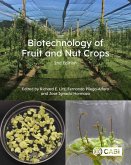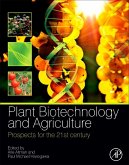Endophytes are bacterial and fungal microorganisms that colonize plants without usually eliciting visible disease symptoms but establishing intricate and mutually beneficial interactions with their host plant. This can lead to an increase in plant vigour, growth, development, and changes in plant metabolism. Endophytes may assist in the development of more productive and sustainable agricultural practices or discoveries of novel pharmacologicals. These elusive organisms are often overlooked and their benefits underrated. Endophytes can support plants in a variety of ways to cope with biotic and abiotic stress factors, such as drought, heat, pest and diseases. They can produce particular metabolites, facilitate access to nutrients, change the plant's chemistry, physiology and responses, or by a combination of these factors. The biosynthetic pathways present in endophytes alone or in combinations with the plant's, can lead to novel chemicals, with yet undiscovered pharmacological characteristics. With state-of-the-art knowledge on their discovery and roles, this book describes the diversity of endophytes, their value, exploitation and future challenges. Key features: Provides an overview of the endophytes that are encountered in nature. Demonstrates the beneficial effects of endophytes together with their practical applications in agriculture. Explores how endophytes are valuable candidates for research on future drugs and biopesticides. This title is a valuable resource for students and researchers in plant science and plant pathology as well as those working in the pharmaceutical and pesticide industries.
Dieser Download kann aus rechtlichen Gründen nur mit Rechnungsadresse in A, D ausgeliefert werden.









